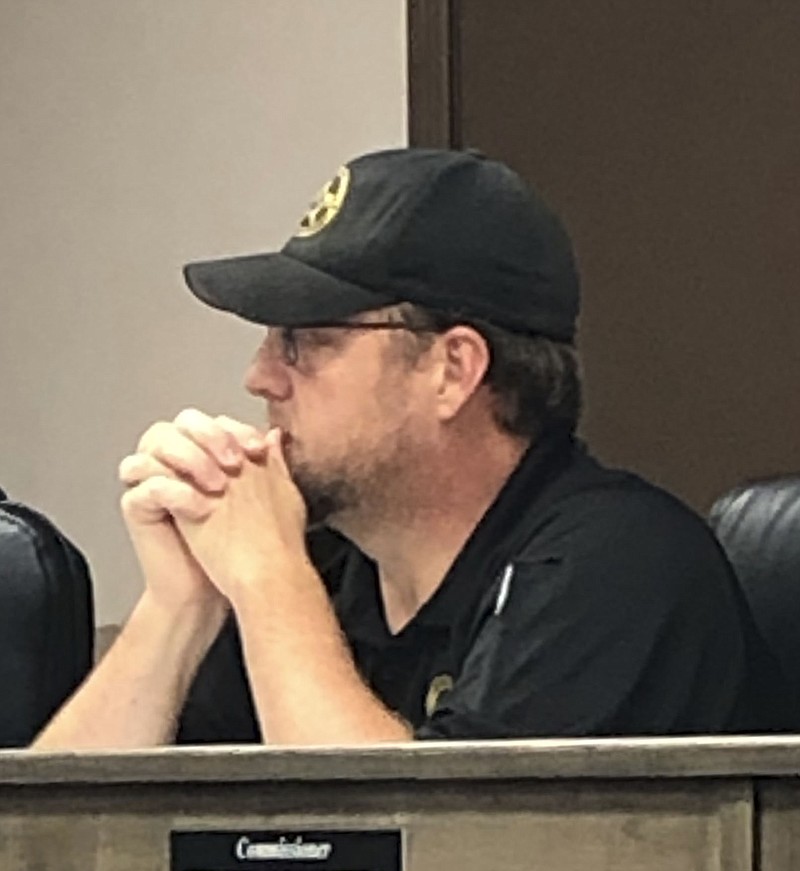JASPER, Tenn. - Marion County commissioners say they want to do whatever they can to protect children in their county schools, and they've taken another step toward that commitment.
Before money was available statewide to help fund school resource officers, the Marion board in 2018 spent almost $350,000 to fund school resource officers in every public school in the county system.
Now, the board is going to try a new technology to help stop potential school shootings.
At the board's July meeting, County Mayor David Jackson said county leaders opened a $17,997 bid from ZeroEyes in Philadelphia, Pennsylvania, which has developed a system that uses existing exterior cameras with a kind of facial recognition software that recognizes weapons instead and would immediately alert 911 and other related officials about the potential threat.
According to the deal, Jackson said the system would be placed in one county school for one year.
"It's a pretty sophisticated system," he said. "It would be for one year to see if it does what they say it will do."
Marion's school system has agreed to pay half the cost and will decide which building will be used for the trial. The county's portion, $9,000, was set aside in this year's budget.
The weapons detection system does have some drawbacks, though.
Jackson said it cannot identify concealed weapons.
Commissioner Gene Hargis, who works for the Marion County Sheriff's Department, said the system can't detect all types of guns, either.
"Shotguns are not detected," he said.
At a recent presentation by the company, Hargis said he discussed those limitations, and he was told that ZeroEyes was "hoping to build that in" in the future.
"So, basically the system doesn't detect anything unless a gun is being shown," Commission Chairman David Abbott said.
Commissioner Matt Blansett, who works for the sheriff's department, too, said he was concerned that the system would only identify weapons that were "out and on school campus."
"I just don't know how quick the response could be with someone that's already on campus with a weapon out of its case," he said. "I mean, I'm all about school safety, but I'm not certain about this."
Jackson said the company based its system on the events that took place during the shootings at Sandy Hook Elementary School in Newtown, Connecticut, in 2012.
In that case, a weapon was visible for up to three minutes outside the building before the shooter entered, which may have been enough time for law enforcement to be on scene if they had known.
"I think you could try it at one school at that price and actually do some testing with it with law enforcement and try to find out if it's really working that well or if we need to not worry about it anymore," Blansett said.
The board voted 12-1 to approve the system for one year. Commissioners Mack Reeves and Allen Kirk were absent from the meeting.
Commissioner Tommy Thompson, who voted against the measure, said he wanted to do everything possible on school safety, but he felt the board was "jumping the gun" without enough information.
"Let's take a good look at this thing and study it," he said. "Don't jump into something half-cocked, so to speak."
Commissioner Donald Blansett said the money was an investment to "try it and let the sheriff's department and police officers train with it."
He said if the system doesn't work, the county has spent some money, but it has also tried something that could gain possibly three to four minutes in response time, which could save lives.
"We want to do what's right by the money for our county, but yet we want to make sure our kids are protected, as well," Abbott said.
Ryan Lewis is based in Marion County. Contact him at ryanlewis34@gmail.com
